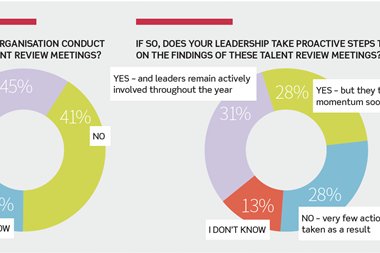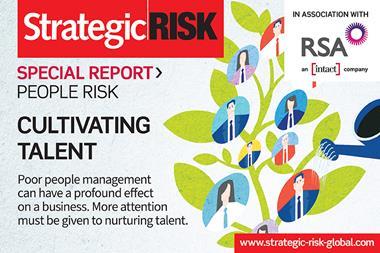Experts are warning that the rising severity and frequency of climate driven events are having an impact on mental health, which is not being recognised by businesses and risk managers.
While many businesses continue to drive resilience against climate change, there are growing concerns that they are ignoring the impact on their greatest assets, the staff, with a rising issue around mental health post severe weather events.
It comes as the International SOS Foundation released its latest research into the business disruptions and health challenges posed by extreme weather.

While 65% of respondents to the company’s survey reported their organisation had been affected by extreme weather in the past five years, it found 40% of organisations fail to provide mental health support for employees and their families impacted by these events.
International SOS said the findings highlight how extreme weather events are already impacting organisations in profound ways, disrupting operations, damaging infrastructure, and putting employee wellbeing at risk. Yet, many organisations remain unprepared for the growing frequency and severity of these events. One critical area of concern is the failure to address health risks associated with extreme weather.
“After such incidents, many employees are left to cope with trauma, stress, and anxiety, yet 40% of organisations do not offer any mental health support to affected employees and their families.”
For organisations with plans in place, only a quarter said they specifically address the health risks to employees, leaving many unprepared to manage injury, illness, or fatalities during an event. With over a quarter of organisations reporting that they would be unable to locate employees during a crisis, emergency response and effective crisis management are further complicated. This poses a significant risk to both employee safety and organisational continuity.
The report added: “Moreover, the mental health impact of extreme weather events is often overlooked. After such incidents, many employees are left to cope with trauma, stress, and anxiety, yet 40% of organisations do not offer any mental health support to affected employees and their families.
“The aftermath of these events can be just as devastating as the physical damage, and without the right support, the long-term consequences can be significant for both individuals and the organisation as a whole.”
BUSINESSES MUST ACT NOW
Dr Irene Lai, global medical director at International SOS, says businesses cannot afford to ignore the mental health impacts of an increasingly volatile climate.
“In today’s world, businesses are navigating increasingly complex challenges due to extreme weather. It’s not just about bracing for a flood or a heatwave; it is about the human side of resilience - understanding how these events can profoundly impact health, mental wellbeing, and security,” she explained. “Many organisations still overlook the comprehensive planning needed to safeguard their workforce in these moments of crisis.
“True resilience involves more than just infrastructure; it requires proactive, people-centred planning that prepares both individuals and communities to withstand and recover from these impactful events. This means establishing reliable communication channels, ensuring access to medical and mental health resources, and embedding flexibility in response plans to adapt to evolving situations. When organisations address these elements, they not only protect their people but strengthen their long-term ability to thrive.”
“Demands on risk managers are only increasing as the world becomes more fragmented and complex.”
On why staff health and safety is falling off the risk managers’ radar when planning for climate events Sally Llewellyn, global security director at International SOS said the issue may well be a lack of recognition.
“We can only take an educated guess at the reasons why and are unsure if it was actually on the radar to be able to fall off,” she added. “Organisations may only now begin to realise the long-term effects of any crisis. Additionally, there could be too many hazards emerging rapidly, all competing for attention and resources.
“Demands on risk managers are only increasing as the world becomes more fragmented and complex. Often, teams are responding to incidents, whether that’s an extreme weather event or a new conflict, rather than working to build resilience against all forms of crisis. There’s a breadth of expectation in managing risk to business interests, supply chains, assets, and the wellbeing of employees. Without reliable support it can be hard to effectively manage this diversity of needs in a constantly changing world.”
HOW TO ADDRESS THE THREATS
On the steps risk managers should be taking address the gap, Lai said they need to priorities people over property.
“Firstly, understand what the gaps are. Use scenarios, including worst case, even if unlikely. Run exercises. Model out the long-term impacts,” she continued.
“Develop a sound understanding of the risk environment and exposure. Systematically work to address gaps, prioritising the most vulnerable people or locations first. Develop business continuity and crisis management plans with a realistic understanding of how your organisation could be exposed to the impacts of extreme weather events.
“Exercise against these plans so all decision-makers and employees understand the actions they should take in the event of an incident. This builds a firmer understanding across the organisation and, hopefully, decreases related anxiety.”
On the threat the lack of support for staff poses to businesses Lai is clear.
“Having multi-skilled individuals experienced in emergency services, disaster management, public health, or crisis planning and response greatly enhances organisations’ ability to effectively respond to challenges”
“There is the obvious – high absenteeism and prolonged absenteeism, as well as reputational risk. If the impacts are foreseeable and mitigation efforts are seen as lacking, then they may have breached Duty of Care requirements. Additionally, the direct physical impact of major events on employees and assets if there is no support structure or crisis plan in place. As we’ve seen in the last 12 months, extreme weather events in low-risk locations like Spain and the US can have a significant impact and, sadly, result in casualties.”
It will also demand a range of new skills within the organisation.
“Having multi-skilled individuals experienced in emergency services, disaster management, public health, or crisis planning and response greatly enhances organisations’ ability to effectively respond to challenges,” Llewellyn explained. “Crisis management skills are critical for leaders in organisations. Leaders need to be able to respond to various crises and be adaptable regardless of the source of the risk or incident.
“This can be challenging, but a sound crisis management plan that is exercised regularly among key decision-makers and is applicable to a wide range of scenarios will set organisations up for success. There is also value in access to reliable information to warn of upcoming risks and maintain information flows during times of crisis. This could be a skill developed inside the business or leveraged from a reliable external source.”














No comments yet